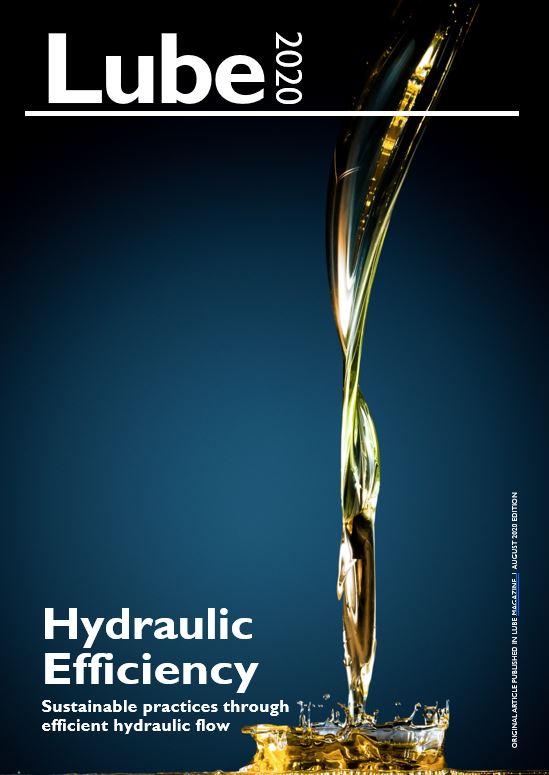Sustainable practices through efficient hydraulic flow
07 Dec 2020
By Tim Smith, Technology Manager, The Lubrizol Corporation
BFPA member Lubrizol and Lube Magazine have kindly shared extracts of this article with BFPA which originally featured in the August 2020 Edition of Lube Magazine – to read the full article CLICK HERE
 Businesses are becoming increasingly aware of the importance of environmentally sustainable practices, not just to their own operations, but also to society and communities. Many view sustainability as a vital component of future growth – key for remaining competitive in a rapidly evolving global economy. As countries struggle against the devastating impact of the COVID-19 pandemic, politicians, investors and campaigners are seizing the opportunity to push sustainability to the forefront of recovery plans. A likely outcome is low carbon investments in infrastructure and accelerated transition to clean energy. As these investments become increasingly oriented towards environmentally agreeable projects, the carbon footprint will become one of many sustainability metrics that suppliers and contractors will be measured against. For those operating hydraulic equipment, the energy demand, whether from diesel or electricity, is a well-known and significant contributor to emissions. Increasing hydraulic energy efficiency is an achievable route to reducing energy use and maintaining competitiveness in a low carbon economy.
Businesses are becoming increasingly aware of the importance of environmentally sustainable practices, not just to their own operations, but also to society and communities. Many view sustainability as a vital component of future growth – key for remaining competitive in a rapidly evolving global economy. As countries struggle against the devastating impact of the COVID-19 pandemic, politicians, investors and campaigners are seizing the opportunity to push sustainability to the forefront of recovery plans. A likely outcome is low carbon investments in infrastructure and accelerated transition to clean energy. As these investments become increasingly oriented towards environmentally agreeable projects, the carbon footprint will become one of many sustainability metrics that suppliers and contractors will be measured against. For those operating hydraulic equipment, the energy demand, whether from diesel or electricity, is a well-known and significant contributor to emissions. Increasing hydraulic energy efficiency is an achievable route to reducing energy use and maintaining competitiveness in a low carbon economy.
In this article, Tim Smith discusses the results of Lubrizol’s multi-year research multi-year research project to study current and future energy-efficient hydraulic fluids. Mixed results observed in the testing of conventional fluids motivated a more in-depth look at precisely how a fluid can influence and improve hydraulic efficiency.
Please follow this link to read the full article CLICK HERE

